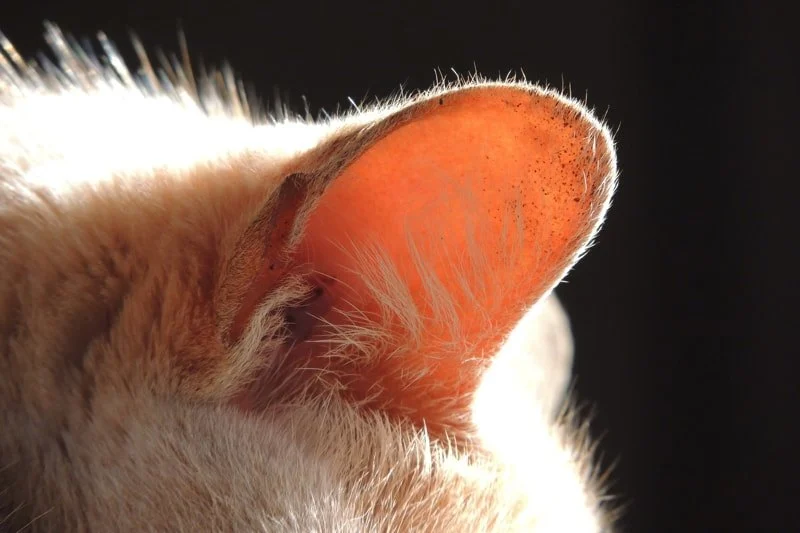
The Science of a Kitten's Hearing Development: Understanding Their Sensory Growth
- 1. Introduction to Kitten Hearing Development
- 2. The Stages of Hearing Development in Kittens
- 3. How a Kitten's Hearing Evolves Over Time
- 4. Factors Influencing Kitten Hearing Development
- 5. Practical Tips for Supporting Your Kitten's Hearing Development
1. Introduction to Kitten Hearing Development
Understanding the development of a kitten’s senses is key to comprehending how they interact with their environment. Hearing, in particular, is one of the most important senses for a kitten, influencing everything from their ability to detect danger to their interaction with their mother and siblings. A kitten’s hearing ability evolves over time, and it's essential for pet owners to understand these stages to provide the best care and environment for their new feline friends.

Just Cats Veterinary Clinic
GuilderlandAlbany CountyNew York
2079 Western Ave, Guilderland, NY 12084, USA
2. The Stages of Hearing Development in Kittens
Kittens are born with their eyes and ears closed, relying entirely on their sense of touch and smell to navigate the world. Over the first few weeks of life, their sensory development progresses rapidly, and hearing begins to play a crucial role. Here's a breakdown of the key stages of hearing development in kittens:
- Birth to 1 week: Kittens are born deaf, and their ears are closed. During this period, they rely on touch and smell to find their mother and nurse.
- 1 to 2 weeks: The ear canals begin to open around the 10-14 day mark. Kittens will start responding to some sounds, although their hearing is still quite limited.
- 3 to 4 weeks: By the third week, kittens can hear a broader range of sounds and will start reacting more to noises. They become more aware of their environment and start responding to voices or sounds around them.
- 5 to 6 weeks: At this point, the kitten's hearing is much more refined, and they can hear high-pitched sounds, which are vital for their communication and survival skills. They also begin to locate the source of sounds more accurately.
3. How a Kitten's Hearing Evolves Over Time
The development of a kitten’s hearing ability is an ongoing process. As they grow, their ability to hear and process sounds improves, which is essential for their survival in the wild. By the time a kitten reaches 8 weeks of age, their hearing is nearly as developed as that of an adult cat. However, like humans, their hearing may continue to refine throughout their early months. The ability to hear high-frequency sounds is particularly important for kittens, as it helps them detect the ultrasonic vocalizations of their mother and siblings, which is vital for communication in the early stages of life.
4. Factors Influencing Kitten Hearing Development
Several factors can influence the development of a kitten's hearing, including genetics, environment, and overall health:
- Genetics: Just as with any other sensory development, a kitten's hearing ability is influenced by its genetic makeup. Some kittens may have stronger hearing abilities from birth, while others may develop their sense of hearing at a slightly slower rate.
- Health and Nutrition: Kittens that receive proper nutrition, especially from their mother’s milk, are more likely to develop strong sensory skills, including hearing. Malnutrition or illnesses can affect the development of their sensory organs, including the ears.
- Environmental Factors: A calm and stimulating environment can enhance a kitten’s sensory development. Exposure to different sounds, from gentle background noise to human voices, can help kittens adapt to the world around them and develop better hearing skills.
5. Practical Tips for Supporting Your Kitten's Hearing Development
As a kitten owner, there are several things you can do to help foster the healthy development of your kitten’s hearing:
- Expose Them to Different Sounds: Gently introduce your kitten to different sounds from an early age, such as soft music, household noises, or your voice. This will help them develop their hearing skills.
- Maintain a Healthy Environment: Ensure your kitten is living in a safe, quiet, and enriching environment. Proper nutrition and healthcare are essential for the healthy development of their hearing and other senses.
- Observe Their Response to Sound: Pay attention to how your kitten responds to different noises. If you notice any signs of hearing issues, such as a lack of reaction to common sounds, consult with a veterinarian to rule out any health concerns.
By understanding the stages of hearing development in kittens and providing the right environment, you can help ensure that your kitten grows into a well-adjusted adult cat with fully developed sensory abilities. To support your kitten’s overall health and well-being, visit Omnia Pet for expert advice, products, and services designed to support your pet's sensory development.



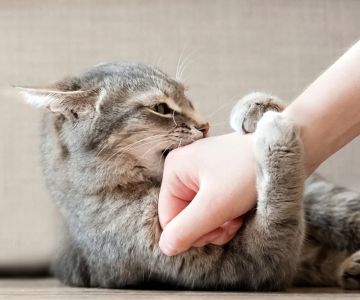
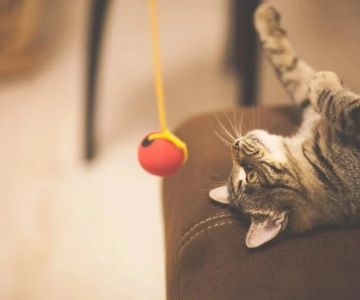
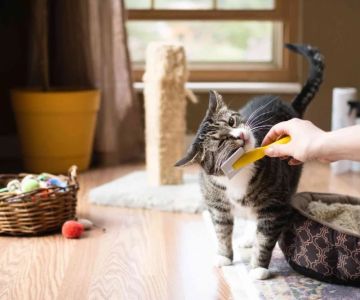

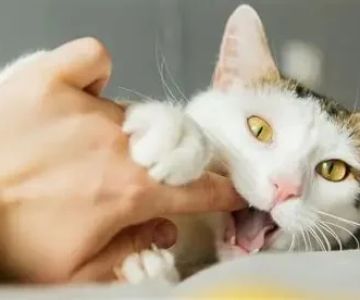
 Hollywood Feed4.0 (184 reviews)
Hollywood Feed4.0 (184 reviews) Brew Biscuits5.0 (2 reviews)
Brew Biscuits5.0 (2 reviews) All Friends Animal Hospital4.0 (446 reviews)
All Friends Animal Hospital4.0 (446 reviews) Kittylandkittens LLC0.0 (0 reviews)
Kittylandkittens LLC0.0 (0 reviews) Village Animal Clinic4.0 (212 reviews)
Village Animal Clinic4.0 (212 reviews) Rift Lake Aquatics4.0 (165 reviews)
Rift Lake Aquatics4.0 (165 reviews) Understanding Pet Insurance: What Does It Actually Cover?
Understanding Pet Insurance: What Does It Actually Cover?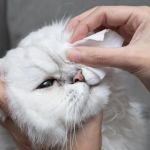 How to Keep Your Kitten's Eyes Clean and Free of Discharge
How to Keep Your Kitten's Eyes Clean and Free of Discharge The Truth About Heartworm Disease: Prevention is Cheaper Than Cure
The Truth About Heartworm Disease: Prevention is Cheaper Than Cure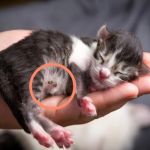 Why Is My Kitten's Belly Button Showing? | Omnia Pet
Why Is My Kitten's Belly Button Showing? | Omnia Pet Why Does My Cat Bite Me Gently? Love Bites Explained
Why Does My Cat Bite Me Gently? Love Bites Explained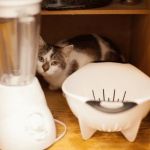 How to Stop Your Kitten from Getting into Cabinets
How to Stop Your Kitten from Getting into Cabinets